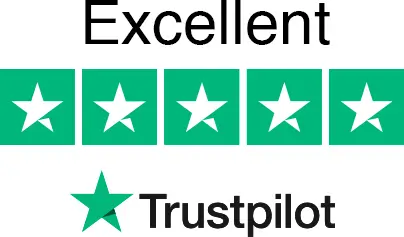Key Takeaways
- Getting a County Court Judgement (CCJ) is a practical, legally backed way to recover unpaid debts in England and Wales when standard reminders have failed.
- To apply for a CCJ, you must follow the court’s strict pre-action protocols, issue a compliant Letter Before Action, and provide complete evidence of your claim.
- Inaccurate or incomplete information on your Form N1 can cause delays, extra costs, or result in your claim being dismissed.
- Submitting all relevant documents and a clear chronology of events significantly boosts your chance of a successful outcome.
- Failing to comply with court rules or skipping required steps can leave your claim struck out, limit your recovery options, and expose you to extra costs.
- There are different CCJ types—such as default judgement, judgement by admission, and determination—each affecting enforcement rights and the debtor’s responsibilities.
- Once issued, a CCJ can seriously harm a debtor’s credit for up to six years. Swift action is vital after judgement, either for payment or agreed settlement.
- Go-Legal AI offers step-by-step guidance, digital templates, and practical tools so you can complete your CCJ claim with speed, clarity, and confidence.
- Go-Legal AI is rated Excellent on Trustpilot with over 170 five-star reviews from business owners and individuals.
How to Get a County Court Judgement for Unpaid Debts
Chasing unpaid invoices or outstanding repayments can undermine your cash flow and distract you from running your business. If your reminders and calls are being ignored, the route forward is clear: convert your unpaid invoice into a legally enforceable County Court Judgement (CCJ) in England and Wales.
A CCJ gives you the court’s backing to recover what you are owed, including the power to enforce payment if the debtor ignores you. However, the county court process comes with fixed procedures, formal evidence requirements, and zero tolerance for errors. Use this practical step-by-step guide to understand exactly how to get a county court judgement—from sending your Letter Before Action to submitting your claim and navigating common pitfalls.
At every step, Go-Legal AI provides downloadable, expert-reviewed templates and smart digital tools so you can secure your CCJ efficiently and affordably, without costly mistakes.
What Is a County Court Judgement (CCJ) — and When Should You Apply?
A County Court Judgement (CCJ) is a formal order made by the county court in England or Wales confirming that someone legally owes you money. Obtaining a CCJ turns your unpaid invoice or loan into a court-backed debt. This not only increases pressure on the debtor, but also opens the door to forceful enforcement if they still refuse to pay.
You should consider applying for a CCJ if these situations apply:
- Overdue invoices: Your client or customer has failed to pay despite repeated reminders.
- Unpaid private loans or advances: You lent funds under clear terms and have not been repaid.
- Breach of a commercial contract: Someone has failed to pay as agreed for services, goods, or projects—after you’ve given them every reasonable chance to resolve it.
A CCJ is not advisable if the underlying contract is unclear, if core debt details are missing, or if the amount owed is genuinely disputed. In these cases, try mediation or consult one of our on-demand legal experts before proceeding.
Who Can Apply for a County Court Judgement in England & Wales?
Anyone with a direct legal interest in a legitimate, overdue debt can seek a CCJ. This includes:
- Individuals — personally owed money (e.g. freelancers, sole creditors).
- Sole traders & partnerships — for services, goods, or advances not paid by clients or customers.
- Limited companies — recovering money from late-paying customers, suppliers, or business partners.
- Partnerships — where debt arises out of joint business dealings.
You need a clear contract or other evidence confirming your right to payment. If you are unsure whether your documentation qualifies, it’s crucial to clarify before investing time or court fees in a claim.
Our platform helps you confirm eligibility and guides you through critical pre-checks to ensure your claim is in order—saving time and eliminating costly errors.
What Documents Do You Need for a CCJ Application?
Providing strong, well-organised evidence is key to convincing the court and securing a quick judgement in your favour. To prepare a County Court Judgement claim in England & Wales, gather these essential items:
| Document / Evidence | Purpose | Importance |
|---|---|---|
| Letter Before Action | Puts debtor on notice that court action is imminent | Required by court rules; proof of fairness |
| Full Statement of Account | Itemised breakdown of outstanding amounts, dates, terms | Shows debt is overdue, not a mistake |
| Contract / Invoice | Proof of agreement & delivery/supply | Demonstrates clear legal right to payment |
| Completed Form N1 | Official application for a county court money claim | Begins the legal claim process |
| Record of Communication | Emails, letters, payment reminders | Shows reasonable steps taken before court |
What Strengthens Your Claim?
- Signed, dated contracts or approved order forms.
- Complete, chronological email threads showing you chased the debt.
- Bank statements or account summaries with transaction records.
- Proof of delivery of goods/services (delivery notes, sign-off emails).
- Evidence that the Letter Before Action was received (signed-for delivery or acknowledged email).
What Weakens a Claim?
- Missing or unsigned contracts.
- Gaps or inconsistencies in your timeline.
- Unclear calculations or conflicting figures.
- No evidence you warned the debtor of legal action.
Step-by-Step: How to Get a County Court Judgement in England & Wales
To secure a county court judgement, you must satisfy strict court protocols and present your case clearly. Here’s a step-by-step guide that reflects current law and practice in England & Wales:
-
Follow the Pre-Action Protocol for Debt Claims
– Courts expect creditors to give debtors full details and a fair chance to respond before beginning court proceedings. Send a comprehensive Letter Before Action with all filings and supporting information.📘 For Example: A recruitment agency, Forward Talent Ltd, sent its debtor a Letter Before Action summarising the overdue amount, attaching the contract, and outlining a 14-day deadline to pay or respond. When the debtor neither paid nor replied, Forward Talent proceeded to court. -
Issue a Legally-Compliant Letter Before Action
– Clearly state the debt, provide details, set a deadline (minimum 14 days), and warn of impending legal action. Our platform’s template ensures all required elements are included. -
Complete and Submit Form N1
– Fill in all claim details clearly: parties’ names, amount owed, interest (if claimed), and attach supporting evidence. You can file Form N1 online via the Government’s Money Claim Online (MCOL) portal or by post at your local county court. Our step-by-step workflow helps you avoid common errors. -
Officially Serve the Claim
– The court will send your claim to the debtor, marking the official “service” date. The debtor then has 14 days to respond, pay, or defend the claim. -
Await Response — Types of Judgement
– If the debtor ignores the deadline, you apply for a Default Judgement. If they admit the debt, the court records a Judgement by Admission, which may include an agreed payment plan. If the debt is contested, the court will consider both sides before making a Determination. -
Enforcement if the Debt Remains Unpaid
– If payment still isn’t made, you can enforce your CCJ through methods such as:- Bailiff (County Court Enforcement Officer) visits
- Charging order over the debtor’s property
- Attachment of Earnings (deducts sums from wages)
- Third-party debt order (freezes sums in debtor’s bank account)
⚡ Get legal tasks done quickly
Create documents, follow step-by-step guides, and get instant support — all in one simple platform.
🧠 AI legal copilot
📄 5000+ templates
🔒 GDPR-compliant & secure
🏅 Backed by Innovate UK & Oxford
Types of County Court Judgement (CCJ): Default, Admission, and Determination
You may encounter several judgement types after filing your claim:
| Judgement Type | What It Means | What Triggers It | Next Steps |
|---|---|---|---|
| Default Judgement | Court decides in your favour because the debtor fails to respond | Debtor misses their deadline | You can enforce the judgement |
| Judgement by Admission | Debtor accepts they owe the money, court formalises agreement or payment plan | Debtor responds and admits debt | Monitor plan; enforce if breached |
| Determination | Court reviews the evidence and decides what is owed and when | Claim is contested or unclear | Comply or proceed to enforcement |
Knowing which CCJ type applies ensures you take the right enforcement step as soon as you have a court order.
Common Risks and Mistakes in Your County Court Judgement Application
Getting a CCJ is straightforward if you follow strict court requirements, but even small mistakes can undo your efforts and cost you time and money. Watch out for these pitfalls:
- Missing deadlines: Failing to send the Letter Before Action or respond to court correspondence on time can see your claim struck out.
- Incomplete applications: Missing key fields on Form N1 (like addresses or contractual references) will delay the claim and may lead to rejection.
- Incorrect details: Errors in names, dates, or sums can invalidate your claim or open the door to disputes and appeals.
- Insufficient evidence: Failure to clearly demonstrate the debt and preceding steps almost always results in a failed claim.
- Overstated claims: Adding interest or charges outside those legally justified can undermine your credibility and result in a lower award (or costs against you).
- Skipping protocols: Not providing the Letter Before Action or refusing reasonable negotiation requests can see your claim rejected for procedural non-compliance.
What Happens After a County Court Judgement is Issued? (Debtor Impact and Enforcement)
A CCJ gives you more than a moral right—it provides serious leverage:
- Court-mandated payment: The debtor must clear the full amount or stick to a payment plan, as ordered by the court.
- Public record and credit impact: CCJs are registered on the public Register of Judgments, Orders, and Fines for six years, severely affecting the debtor’s creditworthiness and ability to get loans or credit.
- Enforceability: If ignored, you can take formal enforcement action—no further warnings required.
Enforcement Options
Choose the right method based on what you know about the debtor:
- Bailiffs (County Court Enforcement Officers): Recover assets or payment.
- Charging order: Secure your debt against the debtor’s property or land.
- Attachment of earnings: Take payment directly from the debtor’s wages.
- Third-party debt order: Freeze funds in a debtor’s bank account and pay you directly.
Actions Open to the Debtor
- Settle quickly: Paying in full within 30 days can remove the CCJ from the register.
- Negotiate: Debtors can offer payment plans through the court, which, if agreed, form part of the judgement terms.
- Apply to set aside: If they believe the judgement was wrongly entered (for example, paperwork not received), the debtor can challenge it.
How Go-Legal AI Makes Your CCJ Application Simple, Fast, and Effective
Go-Legal AI takes the confusion and legal risk out of claiming a CCJ by giving business owners and individuals a clear, expert-guided process.
With our platform, you get:
- A clear, guided digital workflow: Enter your claim details, upload evidence, and follow prompts that check for common errors.
- Downloadable, lawyer-drafted templates: Create compliant Letters Before Action and N1 claim forms without legal guesswork or costly drafting.
- Instant, AI-powered document checks: Review your pack for completeness, clarity, and risk points before you file.
- On-demand support: Access to legal experts and hundreds of practical guides if you hit an obstacle or have a specific question.
Our system helps you avoid the most expensive mistakes—from missing deadlines to losing out due to incomplete paperwork—and puts robust legal action within everyone’s reach.
Frequently Asked Questions
How long does it take to get a County Court Judgement in the UK?
If uncontested, a CCJ can be obtained in 4–6 weeks. If disputed, or if the court requests further evidence, the process can stretch to several months.
What costs and fees should I expect?
Court fees depend on the amount claimed and start from £35 for small claims. For exact fees, use the official calculator or our step-by-step claim builder.
Do I need to go to court in person?
Most claims are completed online or by post. Physical hearings are only needed if the debtor files a defence and the court wishes to hear both sides.
Does a CCJ guarantee I’ll get paid?
A CCJ is a powerful tool, but enforcement is your responsibility if payment is missed. Our platform’s enforcement guides will help you recover what you are owed.
How can I remove or set aside a CCJ?
A CCJ can be removed if paid within 30 days or set aside by application where procedural errors occurred. Otherwise, it remains visible for six years.
What should I include in my Letter Before Action?
Reference the contract or invoice, state the sum owed, set a firm deadline (at least 14 days), and specify that legal action will follow non-payment. Our lawyer-reviewed template ensures you never miss a key detail.
Can a business owner apply for a CCJ without a solicitor?
Absolutely. Go-Legal AI’s stepwise tools and templates empower any sole trader, freelancer, or business owner to complete the process confidently, no legal training required.
Is the judgement public, and will it impact the debtor’s credit?
Yes, CCJs are listed on the public register and harm credit ratings unless settled quickly after judgement.
What if I make a mistake or miss info on Form N1?
Mistakes can delay, derail, or invalidate your claim. Always use our AI checker or get an on-demand legal expert to review before submitting.
Start Your County Court Judgement Claim with Total Confidence
Taking decisive and informed action to secure a CCJ is one of the most effective ways to recover unpaid debts, protect your cash flow, and reduce stress. By avoiding generic templates or half-finished claims, you minimise delay, avoid wasted fees, and maximise your chance of a quick, enforceable result.
With our platform, you access digital tools, expert guides, and instant risk checks that make the entire CCJ journey—from initial evidence to successful enforcement—simple and secure. Bring certainty back to debt recovery—start your CCJ application with our stepwise toolkit today.
Ready to put control back in your hands? Create your court-compliant CCJ application today with our easy, AI-powered tools and award-winning templates.
⚡ Get legal tasks done quickly
Create documents, follow step-by-step guides, and get instant support — all in one simple platform.
🧠 AI legal copilot
📄 5000+ templates
🔒 GDPR-compliant & secure
🏅 Backed by Innovate UK & Oxford










































